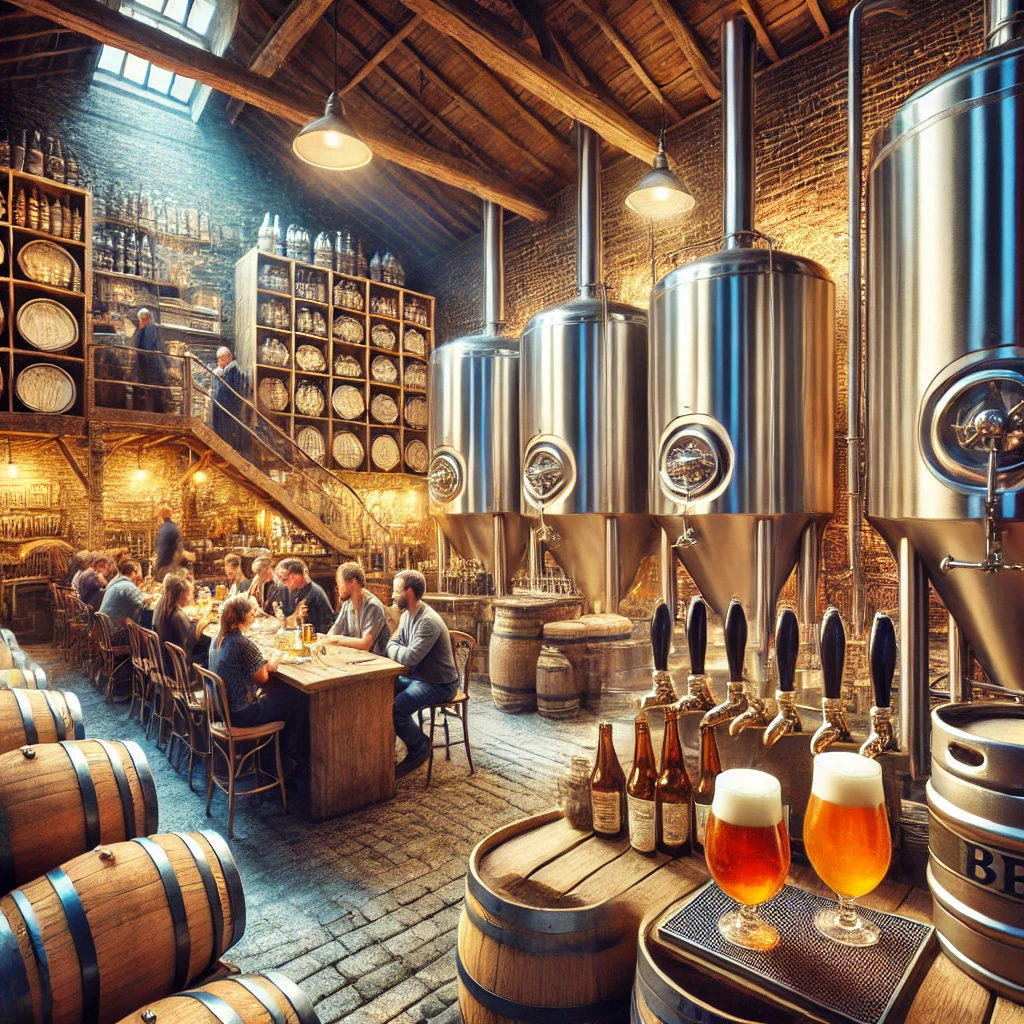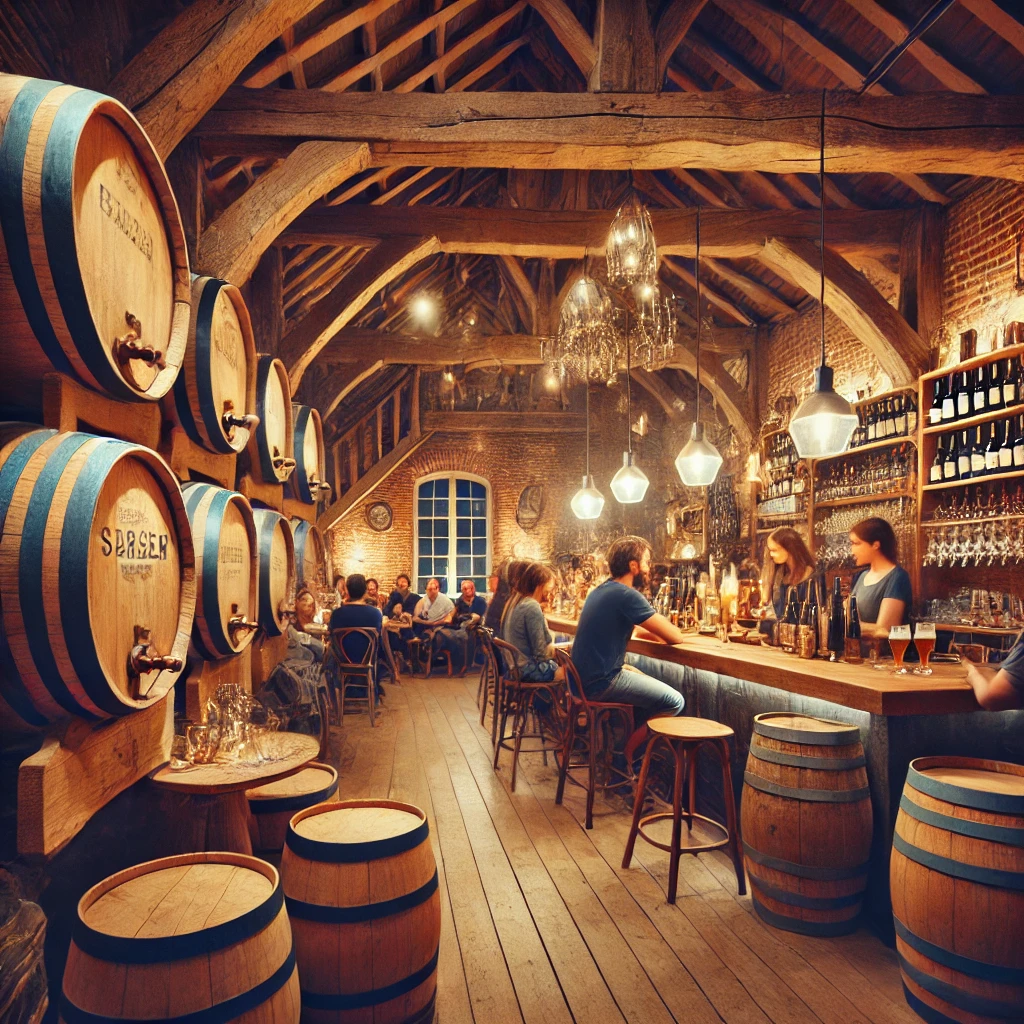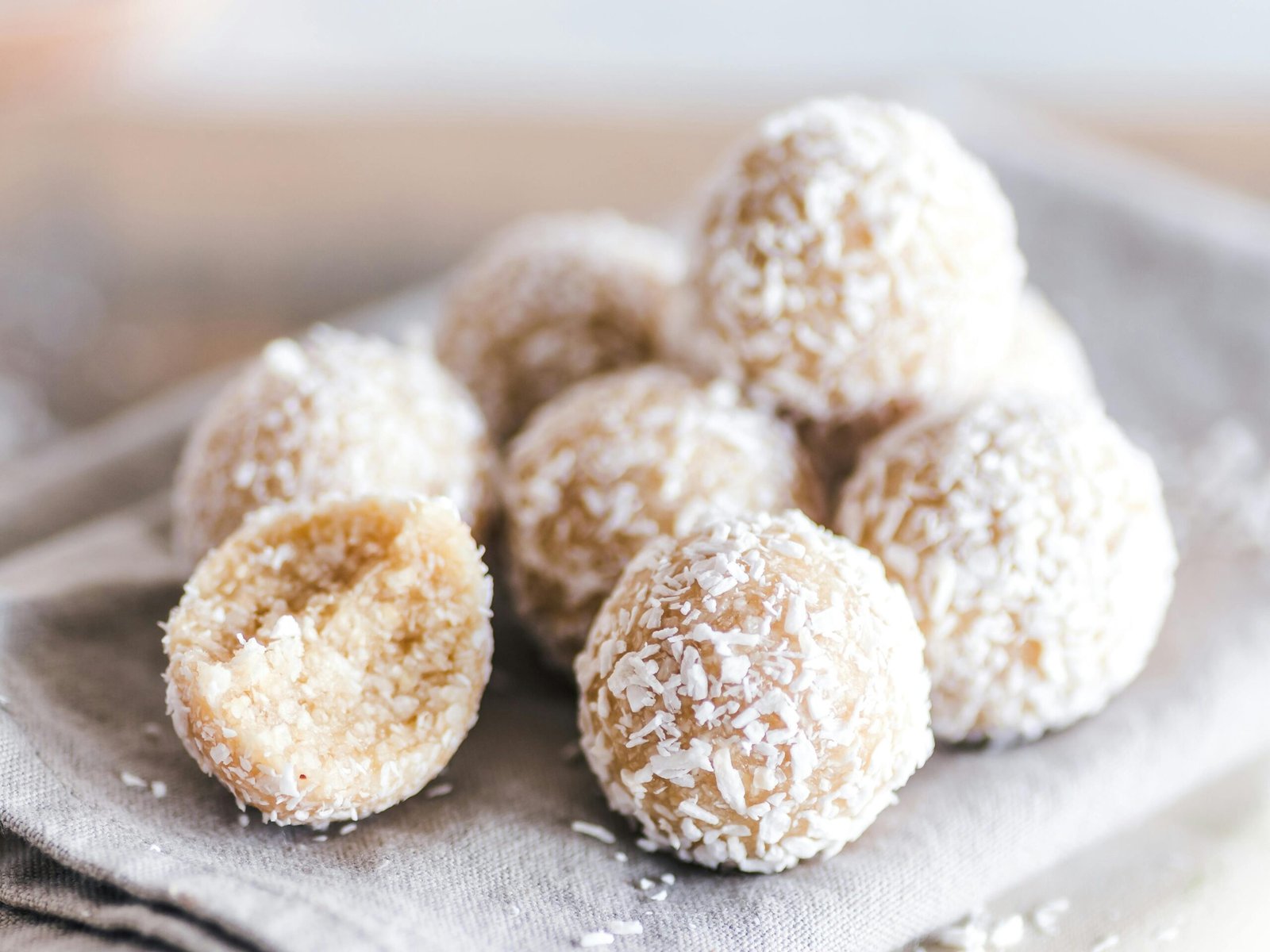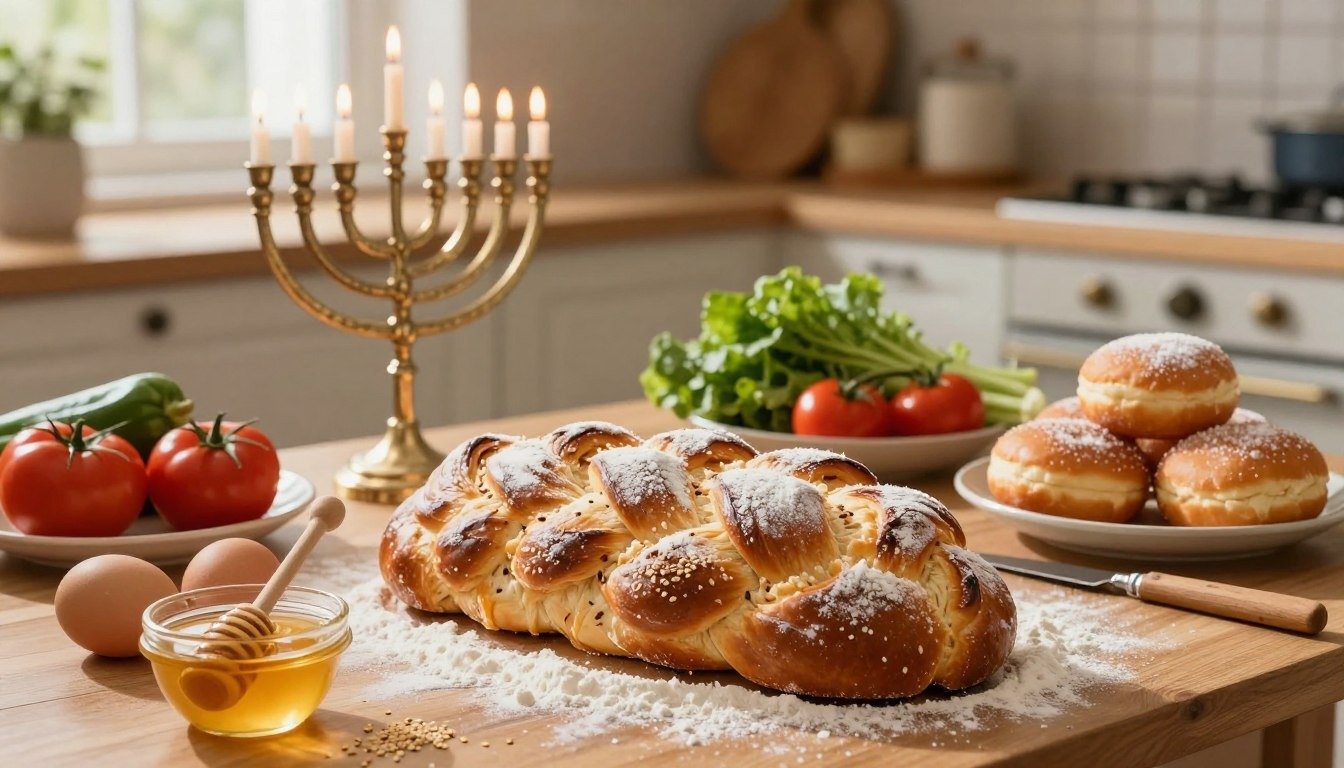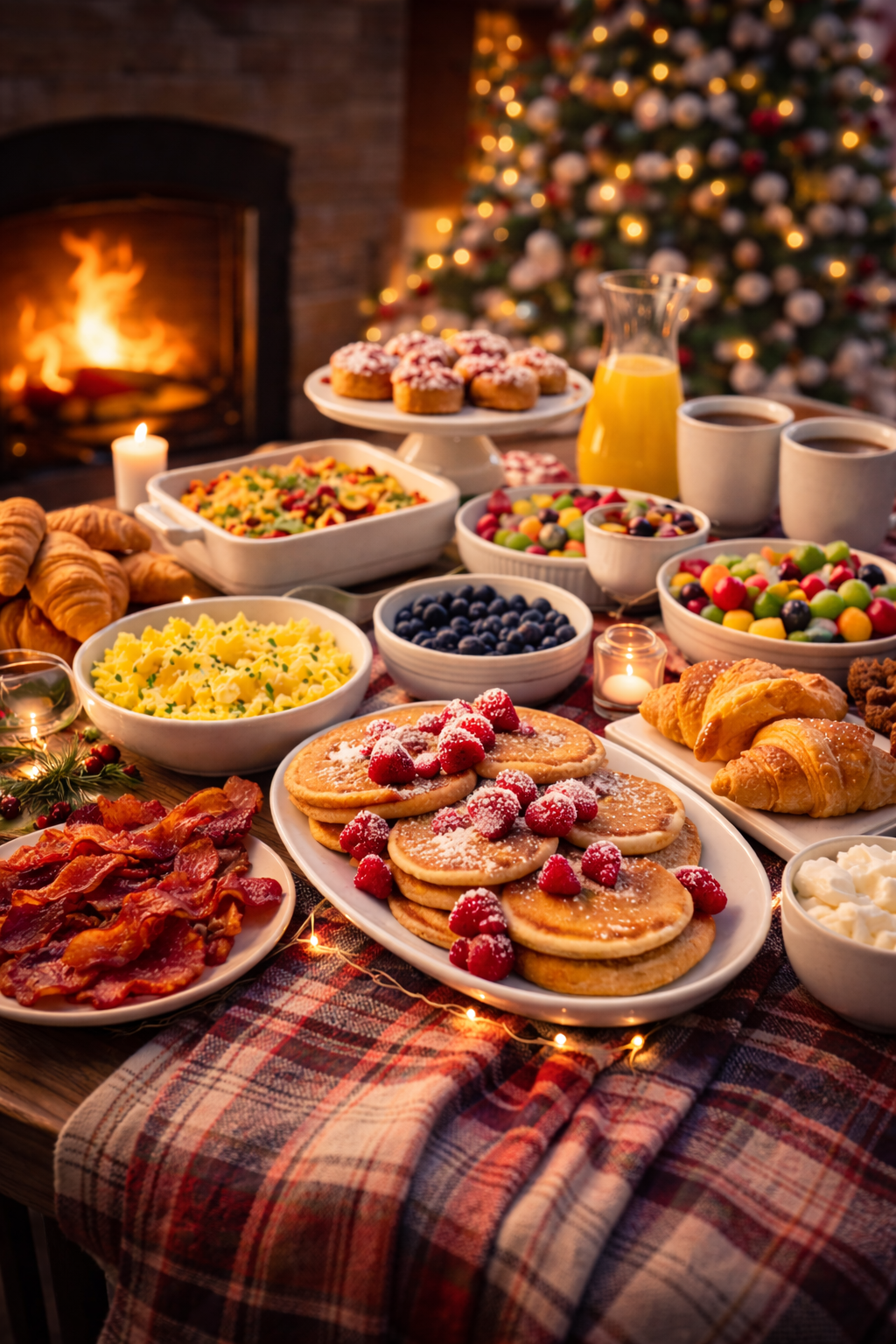Table of Contents
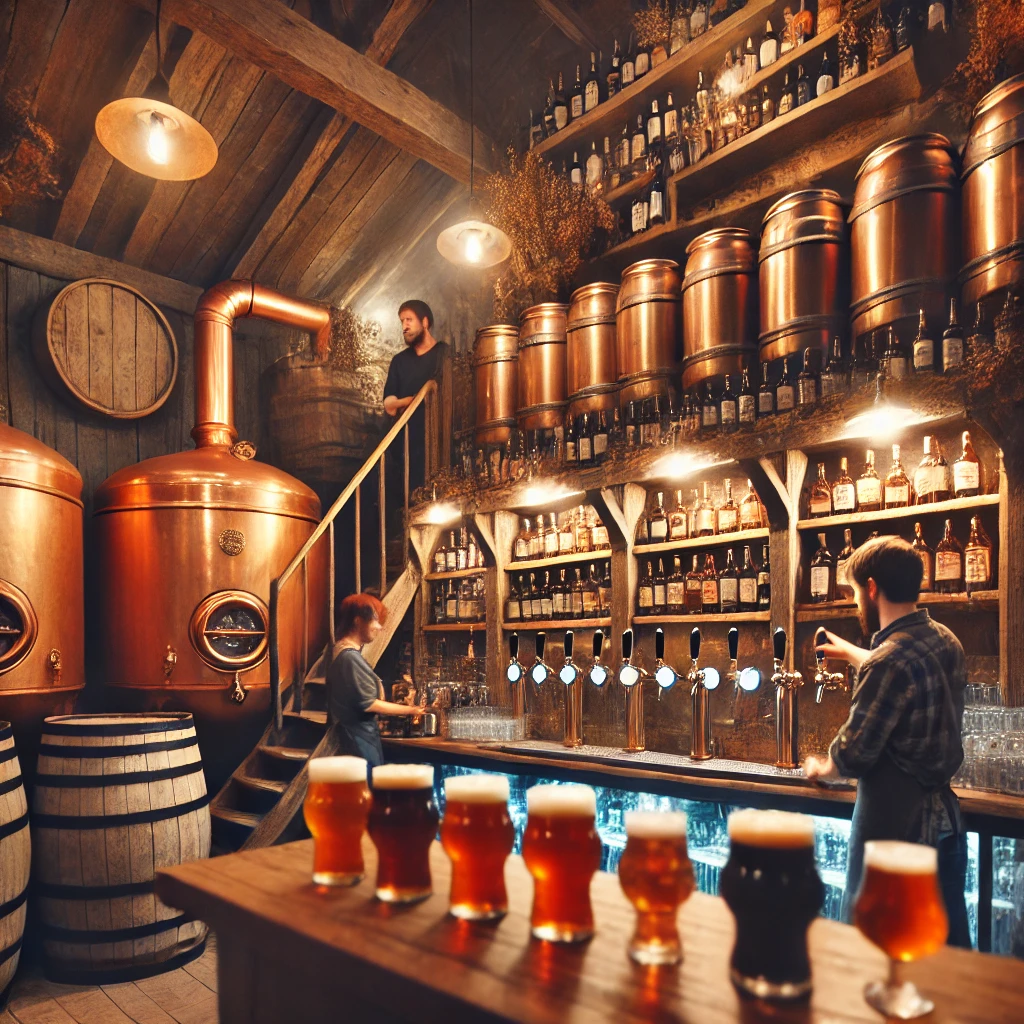
Introduction to French Craft Beers
The craft beer movement, originating from small, independent breweries that emphasize quality, flavor, and brewing techniques, has seen staggering growth worldwide. This global renaissance of brewing has significantly influenced beer cultures across continents, including in countries traditionally known for their wine, such as France.
In France, a nation long celebrated for its sophisticated wine production, the rise of craft beer represents a burgeoning diversification in its beverage industry. This transformation can be attributed to a growing consumer interest in artisanal products and the desire for unique, varied flavors not typically found in mass-produced beers. French consumers are increasingly leaning towards beverages that offer distinctive tasting experiences, mirroring the sophistication they appreciate in their wine selections.
The journey of French craft beer began modestly, with a handful of passionate brewers dedicated to reviving traditional brewing practices while experimenting with innovative flavors and techniques. These pioneers drew inspiration from their global counterparts, whose successes demonstrated that a market exists for high-quality, locally-produced beer. Over time, this initial enthusiasm has proliferated throughout France, leading to the establishment of numerous microbreweries and craft beer bars that cater to an ever-expanding audience.
The influence of the global craft beer movement has undeniably shaped the French beer landscape. Market trends show a significant shift as consumers move away from mainstream options, embracing the offerings of small-scale brewers. This shift is also reflected in the increased availability of French craft beers in various retail outlets and on restaurant menus, indicating growing acceptance and demand.
Consequently, French beer culture is evolving, with a renewed appreciation for the craftsmanship involved in brewing. This cultural shift underscores a broader change in consumer preferences, favoring sustainability, locality, and the artisanal nature of production. The rise of French craft beer not only enriches the country’s beverage repertoire but also showcases its dynamic potential to adapt and thrive within the global craft movement.
A Brief History of Brewing in France
The history of brewing in France dates back to the medieval period, a time when monasteries held the reins of beer production. Monastic breweries were renowned for their unparalleled craftsmanship and dedication to quality. French beer during this era was primarily crafted with local ingredients, resulting in distinctive regional flavors. Moreover, it was a staple in daily monastic life and an essential aspect of local economies.
The arrival of the industrial revolution in the 19th century brought significant transformations to the French brewing landscape. Large-scale production techniques were introduced, marking a shift from small, artisanal operations to more extensive, mechanized breweries. This period saw a proliferation of beer consumption across various social strata, making it a widespread beverage in France.
However, the onset of the 20th century brought challenges. Global conflicts, including the World Wars, and intense competition from the burgeoning wine industry led to a steep decline in French beer production and consumption. Many breweries closed their doors, and beer became less prominent in French culture, with wine taking center stage.
In recent years, there has been a significant resurgence in the French brewing scene. The modern craft beer movement has revitalized interest in and appreciation for French beer. Local brewers are not only resurrecting historical brewing techniques but also experimenting with innovative flavors and ingredients. This renaissance is characterized by a profound respect for traditional practices while embracing international brewing influences, resulting in a diverse and vibrant beer culture.
France’s rich history of brewing is a testament to its enduring legacy. From its medieval origins to the contemporary craft beer revolution, the evolution of French beer reflects the dynamic interplay between tradition and innovation. As the industry continues to flourish, French beer is poised to reclaim its status as a cherished and celebrated beverage.
Regions Known for Craft Beer Production
France, while globally celebrated for its wine, also harbors a rich and diverse craft beer culture. Several regions in the country stand out for their unique contributions to the world of French beer, each distinguished by particular brewing techniques and beer styles that highlight the local traditions and ingredients.
Starting in the northeast, Alsace is a prominent player in the craft beer scene. Known for its close proximity to Germany, Alsace draws heavily from German brewing traditions while infusing a distinct French flair. The region is celebrated for producing crisp, refreshing lagers and exquisite wheat beers that reflect its terroir. The city’s breweries often employ unique fermentation methods and local spices, resulting in beers with complex flavor profiles that are both familiar and intriguingly new.
Moving to the west, Brittany has developed a reputation for its robust and eclectic beer offerings. This coastal region takes pride in its Celtic heritage, which is manifested in the ingredient choices and brewing processes used. Breton brewers are particularly known for their innovative use of local honey, seaweed, and other marine ingredients, yielding beers that are as rich in folklore as they are in flavor. Farmhouse ales and other traditional styles thrive here, often characterized by a rustic and hearty taste reminiscent of the area’s maritime culture.
Another significant region is Nord-Pas-de-Calais, located in the northern part of France. This region is unparalleled in its dedication to the craft of beer-making, often being compared to Belgium in terms of beer diversity and quality. Here, the focus is largely on strong ales and richly flavored brews, with many breweries maintaining centuries-old recipes and customs. The use of regional malts and hops, together with an uncompromising attention to brewing tradition, ensures that beers from Nord-Pas-de-Calais offer a robust and memorable drinking experience.
Together, these regions represent the dynamic and evolving landscape of French beer. Each area not only showcases its unique brewing techniques but also contributes to the broader narrative of France’s burgeoning craft beer industry. As the global appreciation for diverse and high-quality brews grows, these regions continue to shape and redefine what the world can expect from French beer.
Popular French Craft Breweries
France, a country renowned for its wine, is increasingly becoming a significant player in the craft beer scene. Among its many breweries, certain names stand out for their innovation, quality, and influence within the industry. These breweries are not only transforming the perception of French beer domestically but are also gaining recognition on an international scale.
One of the most notable breweries is the Brasserie Cantillon. Established in Brussels in 1900, Cantillon is a pioneer of lambic beers, unique for their open-air fermentation process. Although not originally French, its influence significantly permeates the French craft beer scene. Their signature beers, such as Gueuze and Kriek, are revered for their complexity and depth of flavor, particularly among aficionados of sour beers.
Another key player is Brasserie de la Senne. Founded in 2003 in Brussels, it has made an indelible mark on the French artisan beer landscape. The brewery is celebrated for its balanced and flavorful brews, exemplified by their flagship beers like Zinnebir and Taras Boulba. Their commitment to traditional brewing techniques combined with a modern twist has earned them a loyal following both in France and beyond.
Moving to the heart of France, Brasserie Sainte Cru is making waves with bold and experimental brews. Located in Alsace, this brewery was founded in 2012 and quickly gained a reputation for pushing brewing boundaries. Their range includes innovative beers such as Apocalypse Now IPA and Red is Dead, which boast vibrant flavors and creative recipes. Sainte Cru’s willingness to experiment has garnered it a dedicated fan base eagerly anticipating each new release.
These breweries, among others, are at the forefront of what can be described as a renaissance in French beer culture. Their dedication to craft and quality continues to elevate French beer, positioning it as a noteworthy competitor on the global craft beer stage.
Notable French Craft Beer Styles
France, renowned for its wine, has recently been making waves in the craft beer scene. With numerous breweries producing an array of French beer styles, both traditional and innovative, the diversity is as intriguing as it is enjoyable. One notable style is Bière de Garde, a farmhouse ale traditionally brewed in the Nord-Pas-de-Calais region. Characterized by its rich malt profile and spicy, earthy notes, this amber-hued beer often exhibits flavors of caramel, toffee, and a subtle hint of fruit.
Another cherished style is the French Saison, originally brewed during the cooler months to be enjoyed in the summer. Light, crisp, and highly carbonated, Saisons have a dry finish with peppery spice, citrus zest, and a distinctly refreshing taste. Modern French brewers have taken this style further by experimenting with various yeasts and local botanicals, creating unique twists on the classic recipe.
French craft brewers are also embracing the global trend of IPAs, putting their own spin on this hoppy favorite. The French IPA often features an amalgamation of European and American hops, delivering a blend of floral, herbal, and citrus aromas. These beers strike a balance, offering a moderate bitterness that complements their malty base.
Adding to the innovative edge, French breweries have ventured into barrel-aged beers, utilizing wine barrels to infuse their brews with complex layers of flavor. These beers showcase the influence of wine expertise, boasting intricate bouquets and depth. Additionally, some breweries have introduced more experimental styles, incorporating local ingredients like honey, flowers, and herbs, which provide distinct and memorable flavor profiles.
Overall, the variety and creativity found in French craft beer are vast. These diverse styles reflect a commitment to quality and innovation, enhancing France’s reputation not just as a wine paradise but as a burgeoning beer haven, ready to offer something unique for every palate.
The Craft Beer Market in France
Over recent years, the craft beer market in France has witnessed a notable expansion, fueled by evolving consumer tastes and a burgeoning interest in artisanal products. The French beer scene, traditionally dominated by wine and mainstream lagers, is now increasingly characterized by a diverse array of craft beers, with local breweries producing innovative and unique offerings that cater to a growing community of enthusiasts.
One prominent trend in the market is the rising demand for locally-produced, high-quality beers. French consumers are becoming more discerning and appreciate the distinct flavors and traditional brewing methods that differentiate craft beer from mass-produced varieties. This shift in preference has led to a surge in the number of microbreweries across the country, each bringing its own flair and regional ingredients to the French beer tapestry.
However, craft brewers face several challenges in the French market. High production costs and stringent regulatory requirements can pose significant barriers to entry. Additionally, competition from established beer brands, both domestic and international, remains fierce. Despite these hurdles, the passion and creativity within the craft brewing community continue to drive the market forward.
Festivals and events play a crucial role in the promotion of craft beer culture in France. Events such as the Paris Beer Week and the Lyon Bière Festival provide vital platforms for brewers to showcase their creations, engage with consumers, and foster a sense of community among beer aficionados. These gatherings not only help in increasing the visibility of French craft beer but also contribute to the education of the public about the complexity and artistry involved in craft brewing.
The growth of the craft beer market in France is a testament to the country’s rich brewing heritage and the evolving tastes of its population. As more people discover and embrace the diverse flavors of French beer, the market is poised to continue its upward trajectory, cementing France’s place as a key player in the global craft beer movement.
Pairing French Craft Beers with Food
Pairing French craft beers with food opens up a world of culinary delights, showcasing the rich heritage and diversity of French cuisine. Each French beer, with its unique flavor profile, finds a perfect complement in well-chosen dishes. Understanding these pairs can elevate both the food and beer experience, creating a harmonious dining experience.
For a start, consider the classic French dish, Coq au Vin. This hearty and flavorful stew made with chicken, wine, mushrooms, and herbs finds its ideal companion in a rich, dark French ale. The robustness of the beer can mirror the deep flavors of the dish, while the carbonation works to cleanse the palate, refreshing the taste buds between bites.
Next, pair a tart French lambic with a selection of French cheeses. The acidity and fruitiness of a lambic contrast beautifully with the creamy textures and bold flavors of cheeses like Camembert and Roquefort. This combination not only highlights the nuanced tastes but also balances each component, enhancing the overall culinary experience.
Seafood notoriously pairs well with beer, and French craft beers are no exception. A crisp, light saison complements dishes such as Bouillabaisse, a traditional Provençal fish stew. The refreshing, slightly spicy notes of the saison enhance the fragrant seafood while the beer’s effervescence cuts through the stew’s richness, ensuring a balanced palate with each sip.
Tips from sommeliers and beer experts suggest considering the intensity and flavor profiles of both the beer and the food. For instance, lighter beers often pair well with delicate flavors, while robust beers can stand up to heartier, more intensely flavored dishes. Experimentation is key; the goal is to achieve a balance that accentuates both the craft beer and the cuisine.
Incorporating French craft beer into your dining rituals can transform an ordinary meal into a memorable gastronomic adventure, linking the centuries-old tradition of French cooking with the innovative craft beer movement.
Future of Craft Beer in France
The future of the craft beer industry in France appears promising, with several emerging trends poised to drive growth and innovation. One significant trend is the increased focus on sustainability. Breweries are adopting eco-friendly practices, from sourcing local and organic ingredients to reducing water usage and utilizing renewable energy sources. Consumers are becoming more conscious of environmental impacts, and the demand for sustainably produced French beer is expected to rise accordingly.
Another trend shaping the future of French craft beer is the experimentation with diverse and unique ingredients. Brewers are increasingly blending traditional brewing methods with modern techniques, incorporating locally sourced botanicals, fruits, and spices to create distinctive flavors. This innovation not only differentiates French beer in the international market but also appeals to the adventurous palettes of domestic consumers.
The burgeoning interest in low-alcohol and non-alcoholic craft beers is another development to watch. With growing health awareness, many consumers are seeking beverages that offer the complexity and enjoyment of traditional beers but with lower alcohol content. French breweries are responding by producing a wider variety of low-ABV and non-alcoholic options, catering to this expanding market segment.
In addition to these trends, the digitalization of the craft beer industry is likely to play a significant role in its evolution. Enhanced online presence, e-commerce platforms, and virtual tastings provide breweries with new channels to reach and engage with consumers. These digital tools enable smaller breweries to compete more effectively in the marketplace, expanding their reach beyond local markets.
Finally, collaborations between breweries are expected to become more commonplace. By partnering with other breweries, both locally and internationally, French craft breweries can share knowledge, resources, and innovative techniques, fostering a collaborative environment that benefits the entire industry.
In summary, the French craft beer scene is on the cusp of exciting transformations fueled by sustainability, innovation, and digitalization. As these trends continue to develop, they promise to shape a vibrant future for French beer enthusiasts and producers alike.
